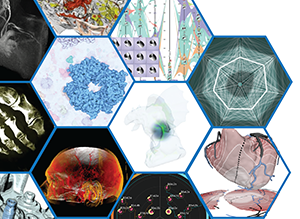Speaker: Prof. Alexander Lex (Scientific Computing and Imaging Institute and the School of Computing at the University of Utah)
Traditional empirical user studies tend to focus on testing aspects of visualizations or perceptual effects that can be fully controlled. Evaluating or comparing complex interactive visualization techniques, in contrast, is much more difficult, as complexity increases confounders. This challenge is aggravated when using crowdsourcing for evaluation, as crowd participants tend to be novices with limited motivation for excelling at a task. In this talk I will introduce methods to run and analyze such studies for complex visualization techniques, including procedural suggestions for crowdsourced studies, design of stimuli for testing, instrumentation of stimuli, and analysis of user behavior based on the data collected.
Bio
I am an Associate Professor of Computer Science at the Scientific Computing and Imaging Institute and the School of Computing at the University of Utah. I direct the Visualization Design Lab where we develop visualization methods and systems to help solve today’s scientific problems.
Before joining the University of Utah, I was a lecturer and post-doctoral visualization researcher at Harvard University. I received my PhD, master’s, and undergraduate degrees from Graz University of Technology. In 2011 I was a visiting researcher at Harvard Medical School.
I am the recipient of an NSF CAREER award and multiple best paper awards or best paper honorable mentions at IEEE VIS, ACM CHI, and other conferences. I also received a best dissertation award from my alma mater.
I co-founded Datavisyn (http://datavisyn.io), a startup company developing visual analytics solutions for the pharmaceutical industry, where I’m currently spending my sabbatical.
